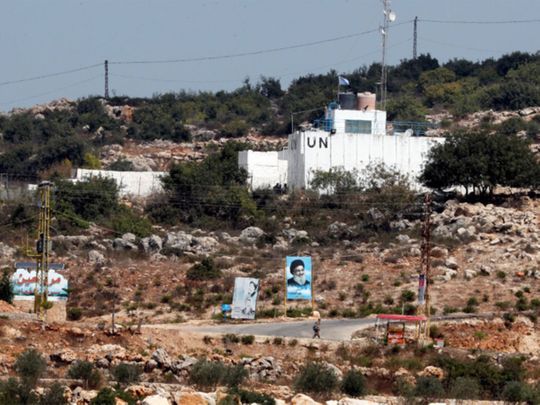
Sunday’s exchange of fire between Israel and Hezbollah militants in Lebanon is an escalation that needs to be taken very seriously in a region already experiencing heightened tensions.
Israel struck the south Lebanese village of Maroun Al Ras and the sound of shelling could be heard in nearby towns including Bint Jbeil, a Hezbollah stronghold. Long lines snaked around petrol stations in some parts of southern Lebanon and residents rushed to stock up on groceries and water, fearing a repeat of the 2006 war. Cars jammed the main highway to Beirut as some residents sought to leave the area. Israel told northern residents to be on alert and open shelters.
Israel’s continuous violation of national sovereignty to carry out air strikes, whether it be in Syria, Iraq or Lebanon should be condemned strongly.
On the other hand, Iran-backed militant groups in all three above-mentioned countries are also operating outside of national authority. These groups have long shunned democracy by operating as a state-within-a-state.
Instead of confronting Israel directly, Iran exploits Shiites in Lebanon, Syria and Iraq to carry out attacks on its behalf. This conveniently spares Iranian bloodshed at the expense of the Arab states
Lebanon has an elected government and parliament that should be used for taking important decisions, especially matters of national security. Or else, what is the point of having a government if a proxy group such as Hezbollah continues to do as it pleases without any consideration for the common Lebanese citizen.
Indeed when Hezbollah and Israel went to war in 2006, the group came under massive scrutiny among Lebanese who saw the group as taking reckless decisions which cost the country millions of dollars in damages to infrastructure and not to mention the loss of life (over a thousand Lebanese lives lost).
Of course, this is what Iran wants. It funds these proxy militant groups to do its dirty work in the region, wreaking havoc and sowing division. Instead of confronting Israel directly, Iran exploits Shiites in Lebanon, Syria and Iraq to carry out attacks on its behalf. This conveniently spares Iranian bloodshed at the expense of the Arab states. In fact, Arab leaders have continuously decried Iran’s destabilising actions in the region and have called on the international community to recognise the threat and act accordingly.
The region is bleeding with festering wars in Syria, Libya and Yemen. It surely does not need to see a new warfront opened between Lebanon and Israel. Now is not a time for bravado and reckless rhetoric. Decisions of war should not be taken lightly and the current border tensions should be monitored and carefully tamed before innocent lives are lost.







